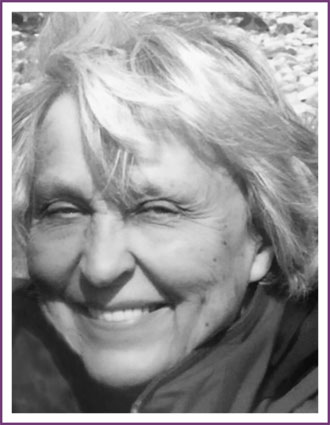DIXIE (Johnson) BELCHER

• Political Activism
• Music
• Social Activism
Inducted: 2017
DIXIE (Johnson) BELCHER
Dixie Belcher has been and continues to be a tireless and conscientious visionary for achieving political and social change through music, which brings people together in unique ways.
Belcher’s childhood included connections with the Salvation Army, and her nominator says she’s been “banging the drum” for issues that move her ever since! Belcher organized Juneau’s St. Paul Singers, a 36-member folk-rock group that performed in the 1970s throughout Alaska and Canada. Her later musical enterprises included Performing Artists for Peace, bringing together Siberia and Alaska families that had been separated during the Cold War by the Bering Straits boundary between Russia and the U.S. She founded “CAMAI” in 1987 to open that border and lectured extensively throughout the U.S., including lobbying in Washington D.C. and Moscow. Her success meant reunions for indigenous families on both sides who hadn’t seen each other in forty years.
As a former Girl Scout leader and outdoor enthusiast, Belcher formed the Alaska Wilderness Experience in 1979 for teens to learn environmental awareness with a focus on indigenous Native culture. Over her lifetime, she founded or co-founded several public service organizations, including Juneau Hospice, homes for troubled teens, prison inmate programs, and a halfway house for re-integration from prison.
Belcher’s activism continues today, using music and environmental awareness through Turning the Tide, a non-profit group focused on education about the effects of pollution, acidification, and warming on the world’s oceans. She is active in Ocean Beat, a program that brings youth in different countries together via the internet to sing together with a goal of raising awareness and inspiring action.
Belcher is an international speaker and a published author and is the recipient of several honors from the Alaska State Legislature as well as the recipient of the Soviet Peace Award.
View Extended Bio